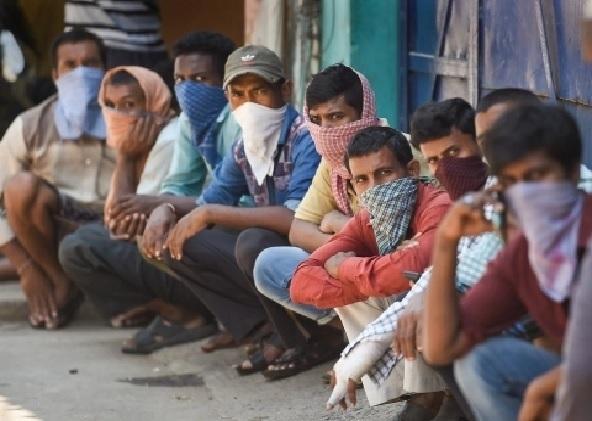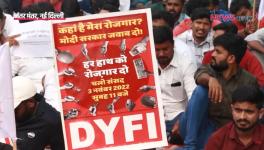Lockdown Caused Prolonged Unemployment, Shift to Informal Work: Survey

Representational Image. Image Courtesy: Sabrang India
Workers in the informal sector are still reeling from the impact of the pandemic even months after the nationwide lockdown was lifted. More and more workers are working as casual workers in the aftermath of the lockdown, and the number of people employed as regular workers has decreased, according to a recent report on the status of the informal workers in the country.
The National Survey on Informal Workers was conducted by the ActionAid Association, an organisation working for social and ecological justice. The ActionAid Association works in 24 states and two union territories in India, with several partners and allied organisations. The second round of the survey covered more than 16,900 informal workers in over 400 districts in 23 states across the country. The survey was carried out from August 23, 2020, to September 8, 2020, in the transition period from Unlock 3.0 to Unlock 4.0, the third and fourth phases of the government’s lifting of the lockdown.
During the unlock process, the extent of the damage caused by the pandemic and the subsequent national lockdown to the already strained economy has become clearer. The report said, “In the absence of adequate State support and secure livelihoods, people were becoming extremely reliant on debt, turning to moneylenders once they have exhausted their network of family and friends. They were also being pushed into taking up more and more precarious forms of livelihoods, and there have been several reports indicating that incidence of child labour was rapidly increasing.”
The ActionAid survey found that nearly half of the 16,961 survey respondents were unemployed, and one-fourth had zero wages. Around 42% of those who said they were rendered unemployed by the lockdown during the first round of the survey in May last year, remained unemployed nearly four months later in September. The recovery in unemployment has been much slower than expected, especially in urban areas, while the wages have plummeted both in the formal and informal sectors.
Even out of the workers who were employed, a majority were either working fewer hours than they were before the lockdown or were finding work occasionally. Many have had to move to alternate sources of livelihood, most prominently from construction and manufacturing to agriculture.
The findings of the survey highlight a notable the shift from regular to casual work, and point out that casual workers have much lower protections at work. Of the workers surveyed by ActionAid, 60% of the respondents were working as casual workers and 22.5% as regular workers. While 71% of the regular workers have eight-hour work days with a half-hour break, only 50% of casual workers enjoy the same; around 34% of regular workers received minimum wages as compared to only 24% of casual workers.
Wages have remained worryingly low during the unlock phase. Almost half of the respondents were earning less than Rs 5,000 per month. Only about eight percent were earning more than Rs 10,000 per month.
The report added, “There was a huge gender disparity in wages. The average monthly wage earned by women was much lower than that by men across all major occupational categories in our sample, including agriculture labour, construction work, manufacturing work, sanitation work, street vending, hotel or restaurant work, and fish work.”
The survey pointed out that even in occupations like tailoring or in the garment industry, where women outnumber men, men earn far more than women. “This was likely due to women being concentrated in lower paid tasks and being paid less than men for the same work. On the other hand, hardly any of the men we interviewed were engaged in low-income occupations like domestic work and salt pan work, where 60 per cent to 80 per cent of workers earn less than Rs 5,000 per month,” it said.
On the occasion of the release of the report, Sandeep Chachra, Executive Director of ActionAid Association, said: “ActionAid Association has undertaken this longitudinal survey to track the condition of informal workers across the country. We need to understand what steps are needed to enable workers and people dependent on the informal economy cope with the COVID-19 situation and their enhanced vulnerabilities. We hope that the recommendations included in the report, which draw upon and reiterate what many trade unions, workers collectives, and civil society networks have been saying, are put into action to protect and respond to the needs of informal workers.”
Get the latest reports & analysis with people's perspective on Protests, movements & deep analytical videos, discussions of the current affairs in your Telegram app. Subscribe to NewsClick's Telegram channel & get Real-Time updates on stories, as they get published on our website.























